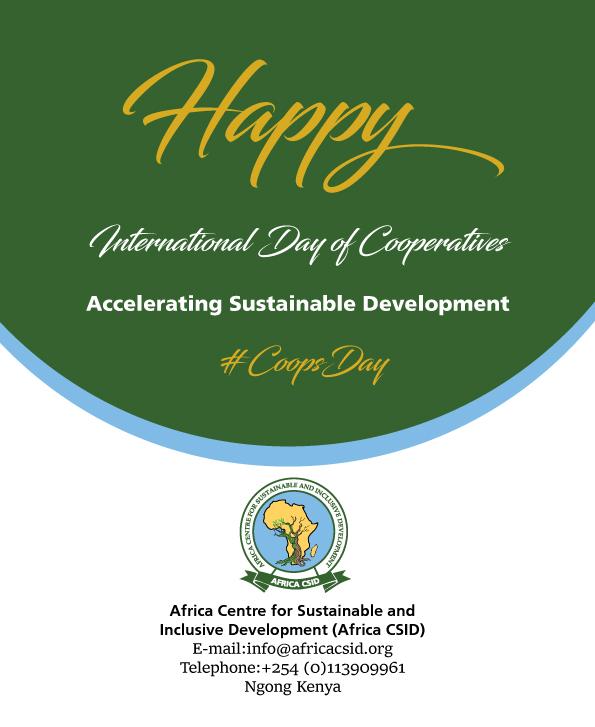
Cooperatives for Accelerated Sustainable Development
The International Day of Cooperatives, observed annually on July 1st, is dedicated to celebrating cooperative achievements, reflecting on milestones, and strategizing for the future. Today marks the 101st anniversary since cooperators first began commemorating this day, which is now recognized as the 29th International Day of Cooperatives by the United Nations. The theme for this year, “Cooperatives: Partners for Accelerated Sustainable Development,” aptly highlights the crucial role that cooperatives play in our societies.
Cooperatives play a significant role in establishing sustainable and inclusive food systems, particularly for marginalized communities where smallholder farmers comprise the majority. These farmers heavily rely on small-scale agriculture for their food security. Cooperatives are actively involved in all aspects of the food system value chain, including production, distribution, and consumption.
At the production level, cooperatives supply smallholder farmers with essential inputs such as seeds, fertilizer, pesticides, and veterinary medications, among others. This collective approach increases the affordability of inputs for smallholder farmers, as they can access them at wholesale prices.
In many rural areas, smallholder farmers often struggle to access markets for their produce, worsened by poor road connections, especially in Africa. This leaves them vulnerable to exploitative brokers who purchase their crops at significantly lower prices. Cooperatives play a crucial role in linking farmers with the right markets, thereby giving them better bargaining power. This market linkage not only benefits the farmers economically but also helps reduce post-harvest food losses, which are common among smallholder farmers.
Moreover, cooperatives go beyond production and distribution by positively influencing consumption patterns. With support from cooperatives, farmers experience increased yields, allowing them to both feed their families and meet their financial needs. This enhanced nutritional security empowers smallholder farmers to prioritize their own food needs, rather than solely relying on selling their entire produce. Additionally, cooperatives can serve as effective channels for promoting awareness about food waste and building the capacity of farmers to adopt a circular economy of food. This approach ensures that food waste is utilized within the cycle to produce other valuable resources, such as energy, thereby minimizing waste and maximizing resource efficiency.
There are a limited number of cooperatives dedicated to organic or natural farming, such as the Bukonzo Organic Farmers Cooperative Union LTD (BOCU) located in the western region of Uganda. However, there is a pressing need for more organic cooperatives to emerge in order to support smallholder farmers who are the majority natural or organic farmers. The establishment of more organic cooperatives aligns with the principle of ensuring that no one is left behind, and will improve the accessibility of bio-inputs for smallholder farmers.
In general, cooperatives play a crucial role in amplifying the voices of smallholder farmers. They enhance farmers’ capabilities by connecting them with appropriate agricultural services, information, skills, and markets. By doing so, cooperatives facilitate the integration of smallholder farmers’ specific requirements and interests within the value chains of food systems. When effectively managed and embraced, cooperatives have the potential to foster inclusivity within food systems and advance sustainable food production.


